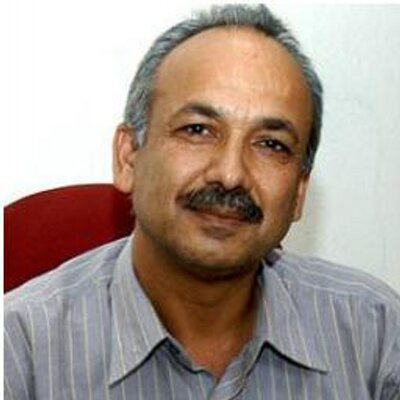 By Yubaraj Ghimire (November 3, 2015) – Narendra Modi had promptly dispatched India’s National Disaster Response Force and its air force to Nepal within hours of the April 25 earthquake. But six months on, a prominent Nepali daily says that the “loss that Nepal incurred following [the] blockade by India now equals that caused by the earthquake”.
By Yubaraj Ghimire (November 3, 2015) – Narendra Modi had promptly dispatched India’s National Disaster Response Force and its air force to Nepal within hours of the April 25 earthquake. But six months on, a prominent Nepali daily says that the “loss that Nepal incurred following [the] blockade by India now equals that caused by the earthquake”.
The promulgation of the new constitution on September 20 was not to India’s liking. PM Modi’s special emissary, foreign secretary S. Jaishankar, wanted Madhesi demands to be addressed first. But Nepal’s response was “We’ll do it our way.” Nepal’s leadership, especially the Maoists and other senior communists, suspected that India’s latest design was to “bring Hindutva and the monarchy back”. Maoist chief Prachanda kept insisting that delay would take away “our achievements”, namely republicanism, federalism and secularism. He prevailed.
What has followed is not palatable to India. An apparently firm alliance between the Unified Communist Party of Nepal-Maoist (UCPN-M) and the Communist Party of Nepal-Unified Marxist Leninist (CPN-UML) has grabbed all key posts in government. Bidhya Devi Bhandari, vice chairperson of the UML, has won the presidential election. Bhandari’s victory is a shot in the arm for PM K.P. Oli, also the UML chairperson, as cordial relations between the head of government and head of state are crucial for a coalition government led by a party without a majority.
But apart from problems with India, issues emerging at home are likely to pose challenges for the government. Speculation about the regime’s longevity, and of the constitution itself, is at its peak. Despite the same faction within the UML grabbing both the PM’s and president’s posts, the party has not been able to name its ministers yet. The other key posts — the speaker of the House and the vice president — have gone to the Maoists. The Nepali Congress, the largest party, is in the opposition and its support will be critical for amending the constitution and passing any major legislation. Moreover, the Marxist and Maoist government has another odd ally — the pro-monarchy Rastriya Prajatantra Party-Nepal, whose chief Kamal Thapa is deputy PM and in charge of foreign affairs. The Madhesi parties have threatened to intensify their agitation against the constitution. Ex-king Gyanendra, who cancelled his customary annual tika ceremony (greeting and blessing the people) because of the prevailing hardships, chose to question the constitution by saying that “it has not been endorsed by the people”.
Thapa visited New Delhi within days of taking charge, but had little success in getting supplies resumed at the normal scale. The blockade of the Raxaul-Birgunj border crossing, which feeds more than half the supplies to Nepal, has remained in place for more than a month now. Delhi cites pro-Madhesi “picketing” as the reason, while the Indian Oil Corporation has reduced its normal quota through other checkpoints as well. Hindus celebrated Dashai (Vijaya Dashami) amid shortages, with India perceived as the villain behind the crisis. Anti-India feeling now runs deep at the level of the people, and Modi’s stock — at its peak when he assumed office and sent earthquake relief — has nosedived.
Equally unprecedented is that China has come forward with the promise to provide 1,000 metric tonnes of petrol in grants and to supply additional petrol, diesel and gas on easy terms. But the problems of connectivity and distance means this can only be a short-term solution. China perhaps realises its moral obligation, in the aftermath of the success of a political equation it has helped form discreetly over time — just as India’s initiative in 2006, promoting the Maoists, led instead to the prolonged transition and instability.
Beijing’s new role and remarks show its enlarged interests. China has taken the lead in putting Nepal back in order, while seeking India’s help. That India earns such hostility is an indicator of how much it has invested in Nepal, but India has surrendered its decision-making role at a critical hour. Nevertheless, neither Beijing nor the average Nepali believes that China is ready to substitute India, with which Nepal shares civilisational, cultural, religious and geographical ties. But India’s vision of Nepal is shrinking, as it talks more of the plains. More than that, Delhi needs to review the cost and consequences of letting babus dictate Nepal’s internal politics.
[email protected]. This article has been originally published in The Indian Express on 3 November 2015.
– See more at: http://indianexpress.com/article/opinion/columns/nepal-fuel-crisis-advantage-beijing/#sthash.jzi9irIM.dpuf

